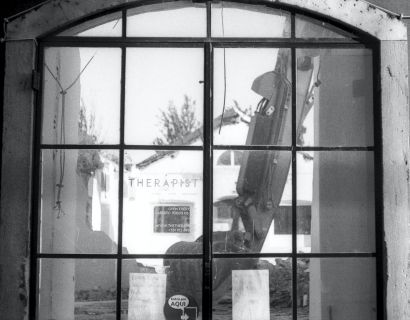Everything for  Business
Business
 Business
Business
 Business
Business
The ECB is expected to raise the rate on July 21, when the repair of the pipeline is completed. The planned reopening of Russia's key gas pipeline next week could be a bigger deal for the euro than the European Central Bank's first inter

The ECB is expected to raise the rate on July 21, when the repair of the pipeline is completed.
The planned reopening of Russia's key gas pipeline next week could be a bigger deal for the euro than the European Central Bank's first interest rate hike in a decade.
Both are set for July 21. While the ECB's plans to start raising rates have been well marked and therefore appreciated by the markets, there is more doubt as to whether Russia will actually restore gas flows to Europe once maintenance of the Nord Stream 1 pipeline is completed.
Government ministers across the continent are open about the risk of a complete shutdown, a scenario that would push energy prices higher and likely lead to a recession. This will mean big problems for the single currency, which is already teetering on the verge of parity with the dollar.
"The 21st will be a key day, more for the gas supply outlook than for the ECB," said Kaspar Hense, senior portfolio manager at BlueBay Asset Management.
Gas supplies to Russia are already at just 40% of normal levels after Moscow cut flows earlier this year. Further disruptions could boost the prospect of rationing ahead of winter, when energy demand is rising. It would also jeopardize further ECB rate hikes.
So far, the ECB's plans to raise borrowing costs from sub-zero levels have failed to prop up the currency as other major central banks have moved much faster to tighten policy and fight inflation. Money markets are betting that rates will rise by at least 125 basis points this year, but the Federal Reserve has already done more than that.
This caused the euro to fall to a 20-year low against the dollar. The currency is now closely monitoring changes in natural gas prices, with an increasing number of market participants citing Dutch gas futures as a key factor in the euro in recent weeks.
"The worst case (a complete shutdown of gas flows) brings a recession and probably another 10% drop in the euro from here," Keith Jukes, chief currency strategist at Societe Generale SA, wrote in a note. "At best, maintaining the status quo makes markets nervous, and the euro can only handle modest short coverage relief."
Although a complete shutdown of gas supplies is not the baseline scenario of UBS Group AG strategists, they see such a scenario, leading to a drop in the euro to 90 US cents. They believe it would also reduce the yield on 10-year German debt to 0%, with the rate lower this week on risk.
"If the gas is cut off, I think the euro-dollar could be 90 (U.S. cents) — then we're probably 60% worth the serious gas shock that I think is playing out," said Aaron Heard, portfolio manager at State Street Global Advisors in Boston. "People are legitimately worried about whether production will be turned back on after maintenance."
 What are you doing with your RV in the offseason?
What are you doing with your RV in the offseason?
 Adobe will buy online design startup Figma for $ 20 billion
Adobe will buy online design startup Figma for $ 20 billion
 To combat the gas crisis, Germany offers a new plan for cheap transit
To combat the gas crisis, Germany offers a new plan for cheap transit
 Porsche family seeks iPO buyout after tearful defeat
Porsche family seeks iPO buyout after tearful defeat
 Clubs and bars are popping up all over Manhattan, providing an alternative social hub and jobs.
Clubs and bars are popping up all over Manhattan, providing an alternative social hub and jobs.
This site uses cookies and other visitor identifiers for the convenience of each user. If you stay on our site after reading this message, it means that you have no objection to the use of these technologies. Learn more
